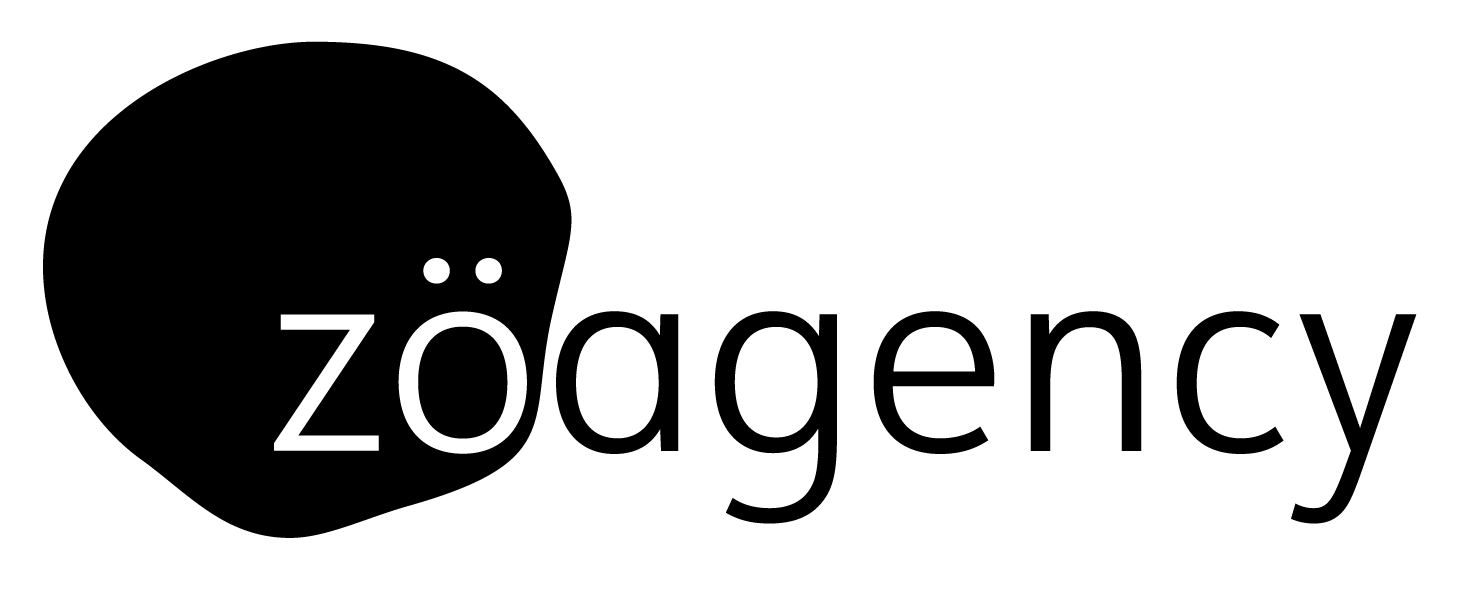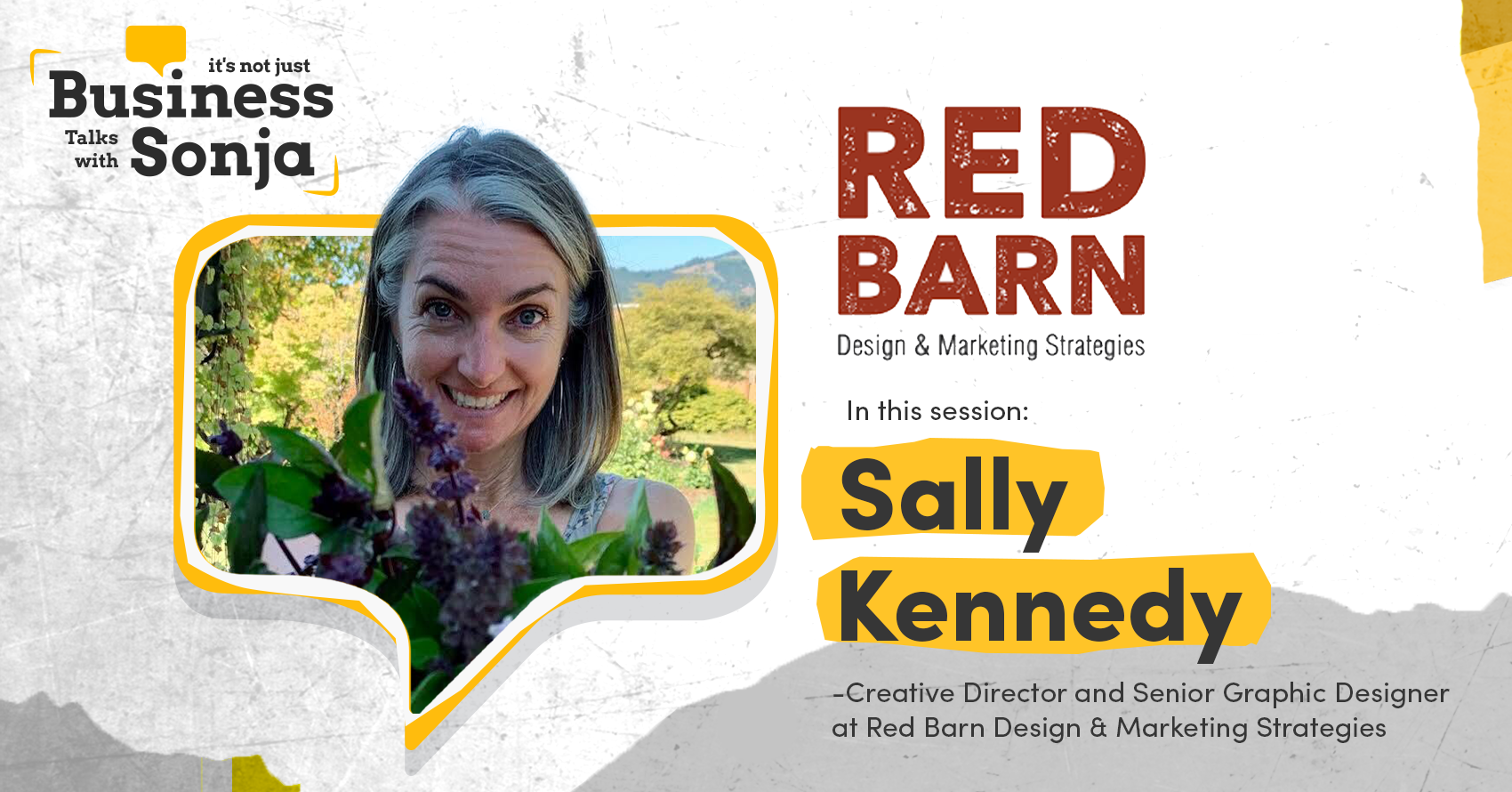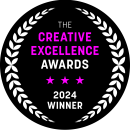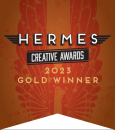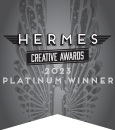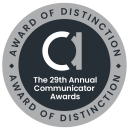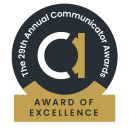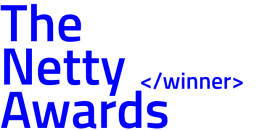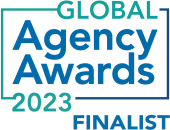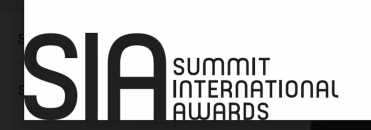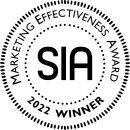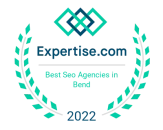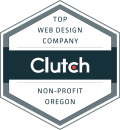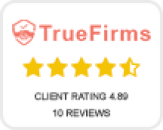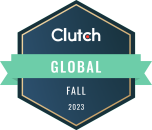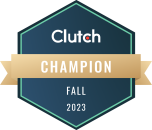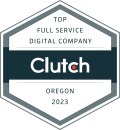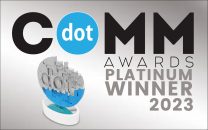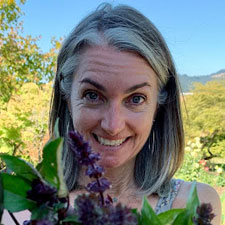
Sally Kennedy is the Creative Director and Senior Graphic Designer for Red Barn Design. Her mission is simple — be real, be good. To Sally, that means being mindful of all stakeholders in whatever she does. It’s not only thinking about profit for shareholders, it’s also caring for staff, customers, the environment, and the community. In her spare time, Sally loves to experience new places, hike remote trails, eat ethnic foods, enjoy great movies and books, and play with family and friends.
Here’s a glimpse of what you’ll learn:
- Sally Kennedy opens up about finding new meaning in her work at Red Barn Design
- Why Sally and her husband started Love + Work and the 21 Day Partnership Challenge
- How Chaotic Kitchens began
- Finding ways to grow after 25 years in the same position
- Working with mission-based clients who value transparency and authenticity
- The experiences that led Sally to find her own spirituality
- Sharing your love of Jesus without being “preachy”
In this episode…
Life can feel a little dull after working the same job for 25 years. How do you find renewed energy in your daily grind?
Discover your purpose. When you know the “why” behind your work, everything else falls into place. Instead of just the bottom line, people who dedicate themselves to a mission find that their daily workflow has new meaning. So, how do you find your purpose?
In this episode of It’s Not Just Business Talks with Sonja, Host Sonja Anderson sits down with Sally Kennedy, Creative Director and Senior Graphic Designer for Red Barn Design, to discuss how her business changed after defining her mission. Sally talks about starting the business with her husband, how they hit the “refresh” button for their company, and finding her spiritual path.
Resources mentioned in this episode:
- Sally Kennedy on LinkedIn
- Red Barn Design
- Be Real Be Good
- Falling Upward: A Spirituality for the Two Halves of Life by Richard Rohr
- Love + Work
- 21 Day Partnership Challenge
- Chaotic Kitchens
- Blue Like Jazz: Nonreligious Thoughts on Christian Spirituality by Donald Miller
- The Shack by William P. Young
- Jonathan Livingston Seagull: A Story by Richard Bach
- Sonja Anderson on LinkedIn
- zo.agency
Sponsor for this episode…
This episode is brought to you by zo agency, a tight-knit team of online and offline marketing pros.
At zo, we serve as the marketing department for small to mid-sized businesses.
We know that marketing and advertising can be demanding and time-consuming — that’s why we make the process so easy-breezy that you don’t have to sacrifice precious time to get the results you need.
To learn more, visit zo.agency or call (541) 633 4725.
Episode Transcript
Intro 1 0:04
Welcome to It’s Not Just Business Talks with Sonja, where we get down to the real business of How Great Leaders dug through their own trenches, and climbed some epic mountains to get where they are today. Now, let’s get started with the show.
Sonja Anderson 0:21
I’m here today with Sally Kennedy, Creative Director and Senior Graphic Designer for Red Barn Design, which she started with her husband Rick Kennedy about 28 years ago, when they first had their daughter. She’s also a longtime and good friend of mine. So I got the privilege of having her on today. And welcome, Sally. Thanks for Thanks for joining me. Sally is in bend right now. But one of the first things I asked you is where are you? Because Sally and Rick have a brilliant life arrangement, which is you’re pretty untethered. And you can go explore, explore pretty well. Is that true? Is that true? Am I making that up for you?
Sally Kennedy 1:03
No, it’s true. It’s true. We are. We’re certainly houseless. Yeah. We live in other people’s homes, either my parents home or a lot of different houses that we do. Yeah. So we’ve gotten to do some traveling. And we’ve been doing this for, gosh, over five years now,
Sonja Anderson 1:20
by choice. I mean, people say why would you? Why are you houses? Do you need some help? But no, it’s absolutely. You’re very talented, very skilled. You just want to untether a little bit and go see the world, which I think is, which is awesome. And I do know that and I do know your husband Rick of course. When we first started talking off off camera. You actually telling me a little bit about Red Barn Design, and some history around that, which I actually think is pretty fascinating. Would you would you be willing to share it again. It’s a little, little repeat. But basically how that’s shifting?
Sally Kennedy 1:57
Yes, yeah. So yeah, we started Red Barn. When I was pregnant with our daughter, I wanted to be at home and kind of knew I wanted to do that. We always felt well, and you talk about God on your podcast. So that’s not weird. We always felt that Red Barn was the means that God gave us to be able to work together at home and be able to both be home with our kids and raise them. So it’s it’s never been, it’s never grown past just the two of us. We’ve always hired contractors and done that sort of work. But it was getting to a point and then especially when, when COVID hit it really just because of the kind of clients we had, it just kind of went down for several months. And it gave us an opportunity to catch our breath and start thinking about, you know, what, what is it that we want to do moving forward? Have you read the book? Falling Upward? Richard Rohr Yes. Love it. Okay, so one of our favorite books. Yes. So we built our we built our box in our early years, right? We box? Yeah. Or what do we fill this box with? You know, where do we want to go with this? One of the first things that we kind of started feeling was this is, you know, this is not, it’s not as meaningful as it used to be. It wasn’t, you know, it the work wasn’t as compelling as it used to be
Sonja Anderson 3:16
you. Yeah, we’re designing junk mail was not Yeah
Sally Kennedy 3:22
Just one too many crappy postcards that I’m sending to printers. And just thinking No, there’s, there’s got to be more than this. Yeah. Rick was really had been trying for years to get out of web development. And you know, he likes doing the front end UX design part of it. Not so much the backend stuff, that it’s all become super fractured. There’s a million different ways to build a website. Yep. Yep. Yeah, it’s kind of chaotic. So he was growing weary of that, the pandemic gave us a chance to reset. So we both started working on some personal projects. One actually, that I didn’t mention earlier, we started something called Love + Work, we wanted to work together to kind of help couples make their marriages stronger.
Sonja Anderson 4:04
And that signed us up and even with a great strong marriage. It’s always wonderful to have
Sally Kennedy 4:10
Right, right. And and we’re not we’re not working, we’re not therapists. We’re not licensed by counsel. You know, we don’t have that we just have some ideas about how to make your marriage better. More of a partnership, its partnership marriage, we actually created something called the 21 Day Partnership Challenge, which if you google you will come to our website and writing
Sonja Anderson 4:29
21 Day Parnership
Sally Kennedy 4:32
Challenge. Yes dot.com. And if you go there, you can download for free our 21 Day Challenge. So there’s 21 worksheets that you would get as a PDF. And then you just walk through those things like cooking a meal together and give each other back scratch and you know, some very simple things from that all the way through, like figure out your Enneagram number. Some work about you know what your dynamics are together as a couple or what are your Love Languages or Yes, Clifton Strengths Finder, right? What are your strengths? And how can you partner together using your best strengths instead of kind of warring against each other, which we did for years? Before we learned that part?
Sonja Anderson 5:12
And by the way, out of curiosity, I’m dying to know, what is your Enneagram type. And what’s Rick’s?
Sally Kennedy 5:19
I am a new nine with a strong eight Wing Wing, which practically means I get terribly outraged, but I’m too lazy to do anything about it.
Sonja Anderson 5:31
Oh, my gosh. And then Rick.
Sally Kennedy 5:34
Rick two, with a strong one wing.
Sonja Anderson 5:36
Got it, though.
Sally Kennedy 5:37
He’s, you know, the whole two thing is like he is so caring of other people. He sees what other people’s needs are, you know, the shadow side is that he throws himself under the bus all the time to help people who aren’t asking for help. So we all have our we all have it, there’s no outside. So
Sonja Anderson 5:55
yeah, exactly. And it’s great to know that about each other and yourselves, because that’s done the heat. That’s been amazing for me. And you, as you know, Todd has a nine and I, when I see him, not, you know, jumping in or acting or making a decision or engaging in any kind of conflict, right? Instead of being impatient about that, I can go Ah, okay. Just, he just needs a minute to process that. And, yeah, and he’s avoiding right now. And, okay, you know, but if you don’t know that you can, you can find your partner quite frustrating. If you don’t understand that they’re just operating out of some, some, Enneagram is brilliant, it is brilliant, brilliant thing. And you know what, you’re not the first person I would say, if not, if not, half the people on this podcast have brought it up. So I always ask everyone, which number are you because it’s so powerful. And if you haven’t used the Enneagram get on it? I bet the pastor that I’m about to talk to next is going to talk about it too.
Sally Kennedy 6:56
Probably. Yeah, it really it really wound up this last 10 years. It’s kind of out there everywhere. And I love that I think it’s great, because it has been so helpful to us, I think. And depending on how far you know down the rabbit hole you go and and kind of what your emotional maturity is. I also see maybe emotionally less mature people using it as a weapon. Because right, any useful tool can also be used as a weapon, a hammer can pound nails into a deck, and that can also wreak havoc. So
Sonja Anderson 7:30
so that would be a very unfortunate use of such a spiritual foundation foundational tool for sure. Right. Right. So but yeah, so the 21 Day Partnership Challenge, I’m going to check it out immediately. I think that’s great. And I will also put it on the website, because who doesn’t have if people want to check that out. But you also are a brilliant chef, I have had to, I’m going to call you. I can’t come.
Sally Kennedy 7:55
I call myself a cook. Okay, I’m trained. I feel like a chef is somebody who has done that done that they’ve gone through the classes and they know the right way to hold their knife and they know what they’re doing. I’m just a cook, so I can make really good food. Yeah, and I can make it for a lot of people or what I just love food. Yeah. And so I have figured out ways over the years to make it for whatever I need to make it for but but yeah, so I created this thing called Chaotic Kitchens. That’s the other website that we that was the COVID project for me
Sonja Anderson 8:24
COVID project. And I loved it because Sally, I actually went straight to it when I saw you post about that, because I feel like you were talking directly to me. I felt like that was my my life. I have a hard time putting together a menu for a week or through on any part of it, or Yeah, yeah,
Sally Kennedy 8:45
yeah. Well, I just you know, we’ve had this little system we’ve done for years that we never think anything of, but then other people see it, they’re like, Wait, that’s cool. Can I get that? And you know, it’s just this little shopping list thing. And anyway, I have all those resources and tons of recipes and, and I know they’re so yeah, there’s that one. And then the main project that Rick Rick and I both worked on it, but it was kind of his baby was BeRealBeGood.com. And that is Yeah, place where we’re trying to figure out what’s most important to us. So philosophically, spiritually, artistically, so we kind of have a little bit of everything and Be Real Be Good. I have a bunch of art I’ve been doing the last couple years. Rick as we both have several blog posts, just discussing some of the just all the crazy stuff that’s been happening in the last couple years. Right. Rick has a great post about seeing with transitional lenses, you know, as a as a straight white guy in Oregon, you know? So we touch on a few things like that. And we’re still developing that out but, but with Red Barn, getting back to your original question and long winded way love the circle. Feeling like we needed some more meaning in that we ended up embarking on this process. We were approached by a friend up in Seattle, a friend of a friend, actually who offered to do something called an advisory career advisory group for us, okay, he told us he will, he will manage the thing, he will manage the group, he will invite a couple of people that he thinks will be relevant to our situation. And then we were to invite three couples that we know friends who have been financially successful in their business endeavors. So we did that we invited people, it took several months to get it all organized and put together he had us create a spreadsheet of he said, I want you to put everything you guys have ever done together on the spreadsheet. What Yeah, what you did, why you did it? What was the outcome? And what did you learn? And that right there, like that took us a month, right to because we’ve done all tried all these different things. We’ve been involved in these groups and home groups, and you know, vocational stuff, and all kinds of stuff, we put it all on there, and we send it out to everybody. And then we met and an experience two of the fastest hours of our lives, when they just peppered us with questions about Wow, why have you thought about doing Red Barn this way? Or have you thought about doing this with Love + Work? Or what if you combine this and this and what? And it just, you know, you get in your little, your little and you can’t see the forest for the trees sometime? I think you know, yeah,
Sonja Anderson 11:36
absolutely. I want to ask you, though, just before you carry on with that, you said that you felt like, somehow you got this feeling? Correct me if I’m saying it wrong, that you want needed more meaning out of your work? What does that feeling feel? Like? How do you know? How did you know? It can’t just have been like, Ooh, I don’t like sending junky postcards out for, you know, carpet cleaners or whatever. I mean, because if it’s, yeah, yeah,
Sally Kennedy 12:01
I think a big piece of it feels like burnout, frankly, you know, you’ve been doing the same thing for 25 years. And, you know, and you’re seeing you’ve had a long time to see what the effects are of that. Right. And for me, personally, the effect was, I’m I’m not giving myself a lot of opportunity for growth here because I can do most of this stuff in my sleep.
Sonja Anderson 12:26
Yeah, right.
Sally Kennedy 12:28
You’re right, like the bar is low here. Like, maybe it was high for me at one point. But now I’m like, stepping over that as I stumble out to get my coffee in the morning. Like, it’s not, yeah, challenge, there’s no. And I’ve got all this experience now, right? Like, I need to be using this experience, even even as a graphic designer, just as a senior graphic designer to be able to talk to a client and see much further down the road. You know, it used to be a client would come to me and say, can you design a logo? Here’s our thing. And here’s our colors. Oh, yeah, sure. I’ll design that logo. Yeah, well, now I’m like, Have you done your persona work? Or who’s your audience? What are your segments? And who are we talking to? And what colors? Do they like? I don’t care what colors you like, Who are you selling to? And what you know, like, they’re all of these other questions. And, you know, how old is your audience? What, who do we need to be designing for? Yeah, and what is their expectation for mobile devices and mobile versions of their website? And, you know, I mean, there are so many other questions that I can ask now. And yet, I’m still with these kind of old clients that are really expected just to Hey, can you jump through this hoop bow? Yeah, sure. I’ll jump through the hoop, you know, it’s production work like, no, that’s not enough anymore.
Sonja Anderson 13:40
So if I heard you correctly, the meaning the meaning was in growth, challenge. Yes, vision so you can see farther or see bigger than Plitt space you’re in so you kind of responding to that call of, for meaning being vision, growth and challenge, right? Because I wonder if that because we’ve all gone through it. I mean, we’ve all gone through that in some form or other and for you, it was a vocationally and I’ve certainly had to continue, continually grow and expand the work that we do in our organization, for the same reasons, right from meeting and challenge, and then hand select certain clients, like I want to support the houseless Task Force or I want to support the LGBTQ community or I want to you know, regardless but because I know that when we’re doing that we’re bringing meaning to it. But defining meaning is hard. Because it’s not you think it was money for a lot of people but it isn’t because you give them all the money in the world. There’s certainly not any happier,.
Sally Kennedy 14:51
right or better or better Yeah, and that’s where the Be Real Be Good piece comes. Yes. Okay. For Rick and I and we’re actually considering changing Red Barn into like taking those two entities and smooshing them together and just becoming Be Real Be Good Design and whatever, I don’t know, whatever our sub one title is, I can’t even think of it.
Sonja Anderson 15:09
I know a really good agency that can help you with your know what I do, I think that’s fantastic. Because it also weeds out. Theoretically anyway, it weeds out. People who don’t really want to be real or be good, they want you to get me that junky postcard. And I think from our agency’s perspective, the very first art agency website is the 100%, opposite direction of most agency websites, because they say, Okay, we’re gonna make you more money. And we’re gonna do this, we’re going to do this. And here’s all of our data. And ours is just art. Like, in your face, you know, bold pictures, and people who don’t like that they turn away right away, which is great, because we don’t want to work with those people. Anyway
Sally Kennedy 15:51
That’s a qualifier. Yeah, it’s all fire. And that’s, that was kind of the conclusion we came to is. We don’t necessarily have another business that we want to create, but what if we just work with companies who are like that, and promote them? You know, the idea is that to then find new clients that are more stakeholder focused, B Corp type companies, companies who like their Why is more than just to make a bunch of cash, exactly, I don’t like their reason for getting out of bed is because they had a really great product or service or idea. And they can’t wait to get it to people, because they know that people need this and it will make their lives better. So they’re interested in their customers, and they’re interested in their staff, and they’re interested in the community at large, if it’s a local organization, or they’re interested in the environment, if it’s a large organization, right, like, it’s not just, we’re gonna make as much money as we can for the shareholders and sign our we’re out, right? Like, no, it’s, it’s got to be better than that. So. And I think, honestly, I think most companies do start out that way. I think people start out with cash, I’m really good at this, I shouldn’t do this for a living, you know, and, and look, I can help people, and I’ve got a great thing, I can make their lives better with this thing that I do or make or whatever. So
Sonja Anderson 17:16
and then yeah, and then yes, like you said, 30 years later, they’re a corporation with a board and an original heart is, is maybe has maybe shifted. And I couldn’t agree with you more. In fact, the three things that you told me about today be will be good, and your 21 day, and your chef’s kitchen, chaotic kitchen, are all for that person, you basically are saying I have something that I like to give you for free to try because it will make your life better. So there’s so there’s meaning in that too, isn’t there? There’s meaning in in, in sharing good things.
Sally Kennedy 17:49
Yes. Yes, yeah. And so those were kind of these meaningful things. But when we got in our career advisory meeting, people started asking, Well, why can’t you take the meaningful piece of that and add it into what’s already, you know, at least kind of profitable business, you know? And then, and why can’t you make that business stronger? Because you are in this industry? And, you know, we had some other friends that were in the meeting that are actually well, he’s an art director at Nike. And she’s, you know, has her own agency. And so they’re in the same industry as us. And they right away, we’re like, yeah, Rick, no more development for websites. And Sally, you’re charging, you’re not charging enough. Just, you know, they just started going down the list. And we were just like, oh, you know, one of the people said, the guy who led it actually said, it seems to me like maybe you guys have been out on your own and outside of your industry for a little too long. And you’re not aware of what some of the industry standards have become, you know, and we’re like, oh, yeah, that’s probably possible. Also, we’ve been focusing on these all these other projects, you know, thinking we might go that way. So it’s been a convoluted crazy process, but it’s been really exciting.
Sonja Anderson 19:06
And it’s falling upward, like you said, but what yeah, how do you know when you’re doing that? Well, I just I’m so curious about how does a person wake up one day? And say, I mean, back in the old days, we call that a midlife crisis, right? But it’s the exact opposite. It’s a midlife renewal, if anything, but what what is it that makes that tick? Was it a slow migration of just feeling a little out of sorts? Is it more of a listening is more of it? How, how does that happen for you? And I know I’ve experienced it myself, but this isn’t my story. Yeah,
Sally Kennedy 19:40
I think, well, it’s not any one big, big moment. i There was a great what you said just now reminded me of something from Donald Miller. Remember the book Blue Like Jazz? No. This is wonderful book written, I don’t know 15 years ago or something? Like Yes. Really fun. He’s actually a business guy now. And he has this whole, like marketing thing that he does Don Miller. But back in the day he he would write about spirituality and his journey with Christianity and, and he’s so funny and so real about his process, but I remember we have this one paragraph highlighted, you know, four times over, where he talks about, like, the moment that I believed in God like that I came to came to faith in God, it wasn’t, it wasn’t like, just boom, oh, I believe in God. Now, you know, it’s like I, I was driving down the road, and I heard this song. And then I told a friend about it, and then the friend, and we hung out for a couple of weeks. And then, you know, we went on this trip to Hawaii, and we met this other guy on the beach, and he started talking about this place down the street where you could get this burrito. And so we went down there, and the guy who has that place told us this other thing. And you know, and you just go from place to place to place to place and you meet the people and you hear their stories. And you, you gather up all these little bits of truth along the way. And and then maybe there’s a one moment where a lot of things come together at once and you kind of have, you know, those Aha, come to Jesus moments, maybe literally, right? I think there are some of those, but I think there’s a lot that builds underneath before you get to that moment. I think that’s true most of the time.
Sonja Anderson 21:21
Yeah, that’s actually pretty profound. I’m just thinking about that for because there isn’t necessarily I know that there are I have friends and many friends who have said there was a moment, there was a moment when that was all you know, and there’s and it’s it’s written in, in every book, from children’s books to deep philosophical books, like being struck by lightning, or the aha moment or the come to Jesus or whatever that is that moment. But that’s not really how it really necessarily all works. I mean, not for me anyway, not for me. Some,
Sally Kennedy 21:58
maybe for some people, I think, you know, there are as many stories as there are people out there. I know, for me, like with my spiritual beliefs. I mean, there was a moment when, before Rick and I were married, and he actually asked me who do you believe Jesus was? Very straightforward question. Yeah. And I kind of had this moment of like, holy crap, I think I actually think he was who He said He was, like, I think maybe he was really the Son of God, like divine Son of God. Like, he met, like, what? And then Rick’s like, Okay, could cool. And he left.
Unknown Speaker 22:37
Left you with that thought?
Sally Kennedy 22:41
You know, and, and I was like, I, I don’t even know what to do. What do I even do with that? That’s not me. I don’t believe in that foolishness. You know, I don’t, I don’t align with those people who say they believe that I’m not like that, you know, like, it was, it was just astounding to me. But looking back, you know, hindsight is 20/20 It was three years building to that moment. Sure. It’s something exactly. friends in college and, and traveling and meeting, you know, talking to Rick and he and I going back and forth between you know, he was in New York, and I was in Portland, we wrote letters, that tech
Sonja Anderson 23:17
of the days of lasers there.
Sally Kennedy 23:20
Yeah. Yeah. And, you know, so and, and long distance phone calls that cost us, you know, 20 bucks a shot. And, you know,
Sonja Anderson 23:29
I think what’s what’s what’s, what I’d like to reiterate about that, um, because I, I did not grow up in the, in the Christian faith, I did not grow up in a Christian family. I didn’t grow up in a Buddhist family. I didn’t grow up in a Muslim app. No. And I’m not even saying that they were agnostic or atheist. They’re just, there was no information, there was no discussion about the matter at all. So um, it would never have occurred to me, although, caveat on the side, it actually did occur to me, but for most people, it wouldn’t occur to them to wander into a church building. Even if it’s beautiful music, and it’s a Sunday and the doors are open. And you’re You’re welcome. It still wouldn’t occur to most people to see if they can find God in there. Or get an education on Jesus, or anything, because it’s very, it feels like you’re that’s like a club that you’re not in, you’re not in. And how intimidating would that be to kind of say, oh, yeah, we’ve all looked at me and yeah, and I don’t know,
Sally Kennedy 24:29
and I don’t know what to do. Do I sit or kneel or stand or what are right? Yeah. Oh, I know.
Sonja Anderson 24:36
I wouldn’t. Yeah, and that and I actually did, weirdly enough at one point, just because I’m curious little I was a little rugrat, and I was like, What is going on in there? I want to go find out. Um, but, uh, what you just said about how there’s sort of a culmination of moments and experiences. You can have a moment in my opinion, three years into sort of serendipitous experiences or just a sense, a sense, a sense, or a sixth sense, or it doesn’t matter where you can just be sitting on a park bench. And in that moment go, Ah, I feel I feel this. Yes. And you can have that without ever even opening a Bible per se. Yeah, right, you can really, I truly believe and I’m, this is my question for you, that God or I am or whatever anybody wants to call it, regardless of what faith that is from, doesn’t need you to walk into a church to get close.
Sally Kennedy 25:38
I 100% agree with you, I actually grew up going to kind of an old school denominational church. And that was fine. That was just something our family did. But it didn’t ever occur to me to like, ask questions about God there. That was just where you went and sang songs and kneeled and sat down, and then you went and colored for a little while. So your parents coming by you? Right? You know, it wasn’t ever more than that to me. And there was never any moment there where I started asking questions, it was not a place that compelled me to ask deep questions. It was until I got into college and found some interesting friends that we all started talking about asking some Where did we come from? What is the point of that? You know, like the Absolutely, yeah. So honestly, I, I feel like my first personal experiences with God, were when I had graduated from college, I got my own apartment, I lived by myself,
Sonja Anderson 26:33
that will give anybody a God moment, by the way.
Sally Kennedy 26:38
And the moments were, you know, walking down northwest Portland, by the park on Hoyt street, you know, and, and looking at flowers coming up through the cracks of the sidewalk, and just thinking, that’s a freaking miracle. That how can there not be God? Why would there be flowers? If there was only random chaos? It doesn’t make any sense. You know, like, I just was having all of these moments. And, you know, and there had been all these other moments and conversations with, you know, friends who were of various faiths and whatever. But But yeah, it wasn’t till then.
Sonja Anderson 27:15
Well, I mean, I yeah, like you said, it can be that, again, a feeling a sense and a questioning of series of moments, or a single moment, the thing that I, that I, I don’t know if I want to say struggled with, but I had those feelings. And it wasn’t specific. It didn’t have I didn’t have to be Buddhist, it didn’t have to be Hindu. It didn’t have to be anything, it just had feelings. And I super blessed because I married a guy who would answer a lot of the questions that I had very openly without judgment. Um, but I think where church or organized communities can be an asset. Well, there’s lots of ways but if for someone like that is to say I have, you know, almost any pastor or any leader of any of those organizations, most of them, if you say, and I’m starting to have feelings about this, can you know, can you shepherd a little, they’re going to have that conversation with you, and they’re going to and then all trying to evangelize you into the flock and, and, you know, you know, dunk you underwater next weekend, you know, it’s not like that if you’re, if you if you’re blessed to have a friend like you, Sally, or Rick, or, or my husband, Todd, or any of those interesting friends, especially during college, like you said, you’re where you’re welcome to just kick it around a little bit. Yeah. Because the answers come to you. It’s there’s no specific route that we’re prescribed to take. I don’t think I mean, I think finding information is what I mean.
Sally Kennedy 28:50
Sure, sure. Yeah. No, I God uses anything. But there was a line from that book. You read The Shack? Yeah. You remember the line is toward the end when he’s talking to Jesus in the book and and they’re talking about different religions and well which way is the right way to to God, you know, which way gets you to Heaven gets your fire insurance or whatever? Yeah. And he says, well, we’ll wait are you saying that all paths lead to God and and the the Jesus in the book answers the most brilliant answer. He says. No, I think most paths lead nowhere. What I’m saying is I’m willing to walk any path to get to you.
Sonja Anderson 29:35
Oh, that’s amazing. That just gave me goosebumps.
Sally Kennedy 29:40
Yeah, yeah. That’s like that’s something I can get on board with. You know, I’m not interested in walking around making people prescribe to my thinking or my way or my hobbies or the food I like, I mean, give me a break. Right. People are so different. God, you Is everything to get our attention, everything. I mean, I was reading all kinds of new age literature, Jonathan Livingston Seagull,
Sonja Anderson 30:11
I had Jonathan Livingston.
Sally Kennedy 30:14
Those were really important books to me in my journey. Those were the books that I feel like woke me up out of kind of this more childlike, just, you know, floating along, not really thinking about anything, to, then asking the deeper questions,
Sonja Anderson 30:31
you know, and that’s asking the questions, but I’ll tell you, I’m, I will speak from my own story. I was terrified to ask questions at first, because but not from Todd. But prior to Todd. Because I felt like there was a there was just don’t laugh. But this is, this is truly how I felt. I felt like it was a trick to trap me and evangelize me. And then I was going to have to go to church every night. And it was going to be this hole. And I was terrified, but still curious enough to be like, but I want to see what’s in there. But I was terrified of Christians, to be honest with you. Yeah. And and actually, not just Christians, people of any faith, because it just felt like, as soon as you say, Ooh, I have a question. They go, you know, swoop you up. And that’s the end of that, you know,
Sally Kennedy 31:15
and when so many Christians are behaving as badly as they are, across our especially American culture. Mm hmm. There is no reason for anyone to want to ask them anything. Right. And that is, that is something that weighs heavy on me every day. Because that is not. That is what what’s clearly not Jesus of the Gospels. Right. You know, who was not white? Not Republican, not American. non violent, right? Like, just Sure, go down the list. He’s just, you know, like, he, he doesn’t think your gun is cool. Yeah. Oh, he doesn’t? There’s nothing in there that would make anybody think he would.
Sonja Anderson 32:03
So if it is the fear, if that’s a real fear, for some who it was for me? Yeah. What, what could you or I tell someone? What’s the what’s the other side of that clan? What’s the love that it feels like? What if you if you’re, you know, you don’t so you don’t have to go into a building and you don’t have to, you know, pick up a Bible and restart by Genesis and get all the way? You know, you don’t have to do all of that. Right to feel and experience and be with? I am. But how, how do you describe that for someone who’s not approached that, but may have those questions?
Sally Kennedy 32:41
Right. It’s such a good question. And I think it’s a different answer for every person. Yeah. I mean, you know, some, I have some friends who are, who I love deeply, they’re just some of my very best friends are very closed to any talk at all of, of Jesus or spirituality. They just, they’re just not comfortable going there. And I think oftentimes, it’s maybe because of like a childhood experience that scared them or, you know, something that happened at somebody’s house, or you know, what a you like my own mom. She went to a friend’s house when she was a very little girl, five or six years old. And they were, what back then was called Holy Rollers. This was at 85 years ago, right? It was this sort of charismatic movement where people would like, be struck by the Spirit and fall on the ground and roll around, you know, you still see some of this in some churches, and it scared the shit out of her. Yeah. And she never looked at anything. Again, that wasn’t just, you know, from a distance, you know, the word like the nominal length national church that we grew up in. And, you know, that was a safe place. Nobody did anything weird.
Sonja Anderson 34:00
You know, it was, but some people will think you’re even weird for even recognizing Jesus at all. Right? Like, especially that some fictional character that, you know, so I mean, it’s hard this is there’s a big leap from Holy Rollers to just to just a regular just being like, Hey, it’s okay. I feel connected to something I can’t name but I want to be closer and, and asking questions of people who are not going to put them in a net Brimhall amount of church next.
Sally Kennedy 34:35
Right. And that’s it, isn’t it? Like? I think, you know, I, the reason I would want to tell somebody else about Jesus is because I love him so much. And he’s made my life richer and deeper and better. And I mean, in every possible way, you know, so why would I not like, if I love if I find a place that As a great, great chocolate cake. Yep. You know, I’m going to want to tell people about the chocolate cake, right. But I’m not going to tell my friend who’s not eating sugar, and has asked me to help them not eat sugar. Sure. I’m not gonna tell them about the chocolate cake. Yeah, no, it makes them uncomfortable. It takes them in places they don’t want to go. Yeah, that’s very, you know, it’s not a perfect analogy. But
Sonja Anderson 35:22
the brilliant analogy actually, I hadn’t even thought of that. Something like that. That’s very, it’s very kind of you.
Sally Kennedy 35:29
I hope that I hope that Jesus makes me kinder, right. I’m sure that I’m a kinder person than when I started all this. I was kind of a sarcastic little twit. I mean, I, you know, I was harsh, kind of harsh. You know,
Sonja Anderson 35:44
I’ve never seen that side of you ever. But I will believe you. Because you did say earlier that you’re a nine with an eight wing and that eight wing can be troublesome sometimes get harsh. I have one of those daughters nine with an eight wing or we are still on that. Yeah. Yeah, Sally, I adore you. Oh, I hope we have a cool, fun topic. Yeah. And I would love to do one, do meet with Rick and say or, you know, say hello. But I adore you. And I really encourage you and support and I’m 100% behind this migration, or sort of evolving Red Barn Design to Be Real Be Good. Because Be Real Be Good. I mean, those are two can everybody get behind that please?
Sally Kennedy 36:34
I hope so. I we need it so badly. Thank you for contacting me and for having me. This has been really special.
Sonja Anderson 36:41
I appreciate you.
Outro 36:45
Thanks for listening to It’s Not Just Business Talks with Sonja, a real-life podcast to inspire you. We’ll see you again next time. And if this is your jam, click Subscribe to get future episodes.
